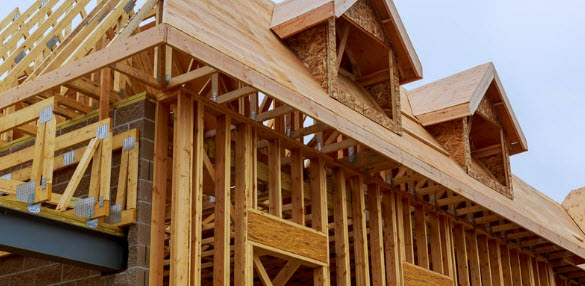How do you manage debt while paying off a mortgage?
Managing debt with a mortgage involves creating a structured repayment plan, prioritizing high-interest balances, exploring debt consolidation options like cash-out refinancing, and protecting your credit score. Smart homeowners use budgeting tools, payment automation, and professional counseling to reduce debt without falling behind on their mortgage.
Introduction
For many Americans, homeownership is both a milestone and a major financial responsibility. But what happens when you’re juggling mortgage payments alongside credit card balances, student loans, or personal debt?
If you’re managing debt with a mortgage, you’re not alone. According to the Federal Reserve, over 75% of U.S. households carry some form of debt beyond their home loan. And with rising interest rates and inflationary pressures, balancing those obligations has become even more critical.
In this guide, we’ll walk through:
- How debt impacts your mortgage
- Practical strategies to reduce debt without risking foreclosure
- When to consider refinancing or debt consolidation
- Tools and services that can support your financial health
- Frequently asked questions from homeowners just like you
1. Understand How Non-Mortgage Debt Impacts Your Finances
Debt doesn’t exist in a vacuum. Credit cards, student loans, car payments, and medical bills can all reduce your monthly cash flow and increase your debt-to-income ratio (DTI)—a key factor lenders use to assess your financial health.
Did you know? Lenders prefer your DTI to stay under 43%, including your mortgage.
The higher your DTI, the more financially vulnerable you are to:
- Missed mortgage payments
- Difficulty qualifying for future credit
- Higher interest rates on new loans
- Lower credit scores over time
Before taking action, gather your full list of debts and calculate your:
- Total monthly debt payments
- Interest rates on each
- Remaining balances
- Whether each debt is secured (like a car loan) or unsecured (like a credit card)
2. Prioritize High-Interest Debt First
While your mortgage typically carries a lower interest rate, other debts—especially credit cards—can drain your budget through compounding interest.
Use the Avalanche Method to pay down the highest-interest balances first, while making minimum payments on the rest. Or try the Snowball Method by starting with the smallest balance to build momentum.
Example:
You have:
- $5,000 in credit card debt at 22% APR
- $20,000 in student loans at 6% APR
- $250,000 mortgage at 5.8% APR
Focus aggressively on the credit card debt first—even small extra payments can prevent hundreds in interest charges over time.
3. Build a Mortgage-Centered Budget
Create a monthly budget where your mortgage takes priority—then allocate funds to debt repayment.
Your budget should include:
- Mortgage (principal + interest)
- Escrow (property taxes + insurance)
- All minimum debt payments
- Savings/emergency fund
- Household and lifestyle expenses
Pro Tip: Aim to put 20% of your net income toward debt reduction and 10% toward savings. Use a digital tool like Mint, YNAB, or Rocket Money to track.
4. Consider Debt Consolidation or Cash-Out Refinancing
If your credit is still strong and your home has equity, you may qualify for:
- Debt consolidation loan: A new fixed-rate personal loan that combines credit card balances
- Cash-out refinance: Replace your current mortgage with a larger one and use the equity to pay off other debts
- Home equity loan or HELOC: Borrow against your home’s value without refinancing your first mortgage
Pros:
- Simplifies monthly payments
- Often lowers total interest paid
- Can improve credit utilization ratio
Cons:
- Extends your mortgage term or increases balance
- Puts your home at risk if you default
- May come with closing costs or prepayment penalties
When to consider:
- You have good credit (680+)
- Your home has at least 20% equity
- You’re struggling with multiple high-interest balances
5. Automate Payments and Avoid Late Fees
One missed payment on your mortgage or credit card can tank your credit score. Set up:
- Auto-pay for fixed debt obligations
- Calendar reminders for variable bills
- Payment alerts via your banking app
Automating just your mortgage, credit card, and student loan payments can prevent up to $500/year in late fees and interest spikes.
6. Protect Your Credit During Debt Repayment
As you chip away at debt, monitor your credit score for improvements—but don’t expect immediate boosts.
What helps:
- Paying more than minimums
- Keeping utilization below 30%
- Avoiding new credit applications
- Keeping older credit accounts open
What hurts:
- Skipping payments
- Maxing out a card
- Closing a paid-off card too soon
Sign up for free monitoring tools like Credit Karma or Experian to catch credit shifts early.
7. Seek Guidance from a HUD-Approved Housing Counselor
If you’re falling behind or overwhelmed, speak to a nonprofit housing counselor. Many offer free or low-cost debt counseling and mortgage assistance programs.
They can help:
- Create a customized debt management plan (DMP)
- Contact your lenders to request hardship forbearance or loan modification
- Help you avoid foreclosure or bankruptcy through early intervention
Find a counselor through:
- HUD.gov/housingcounseling
- National Foundation for Credit Counseling (nfcc.org)
Frequently Asked Questions
Q: Should I pay off my credit cards before my mortgage?
A: Focus on credit cards first, especially those with high APRs. Mortgages have lower interest and longer terms, making them less costly over time if managed well.
Q: Will paying off debt improve my ability to refinance?
A: Yes. A lower DTI and higher credit score from paid-off debt can lead to better refinancing terms.
Q: Is it risky to use my home equity to pay off debt?
A: It depends. Using equity via refinance or HELOC can reduce interest payments—but if you default, your home is collateral. Only use this option if you have steady income and a solid repayment plan.
Q: Can I refinance while in a debt management plan?
A: Some lenders may consider you for a refinance, especially after 6–12 months of consistent DMP payments. Talk to your DMP provider and a loan officer first.
Conclusion: Balance Debt Without Risking Your Home
Managing debt with a mortgage requires discipline, strategy, and sometimes support. By prioritizing high-interest balances, leveraging equity when it makes sense, and building a mortgage-first budget, you can reduce financial stress without putting your home at risk.
If you’re unsure where to start, speak to a loan advisor or housing counselor about your options. Managing debt is a challenge—but with the right plan, it’s one you can absolutely overcome.



